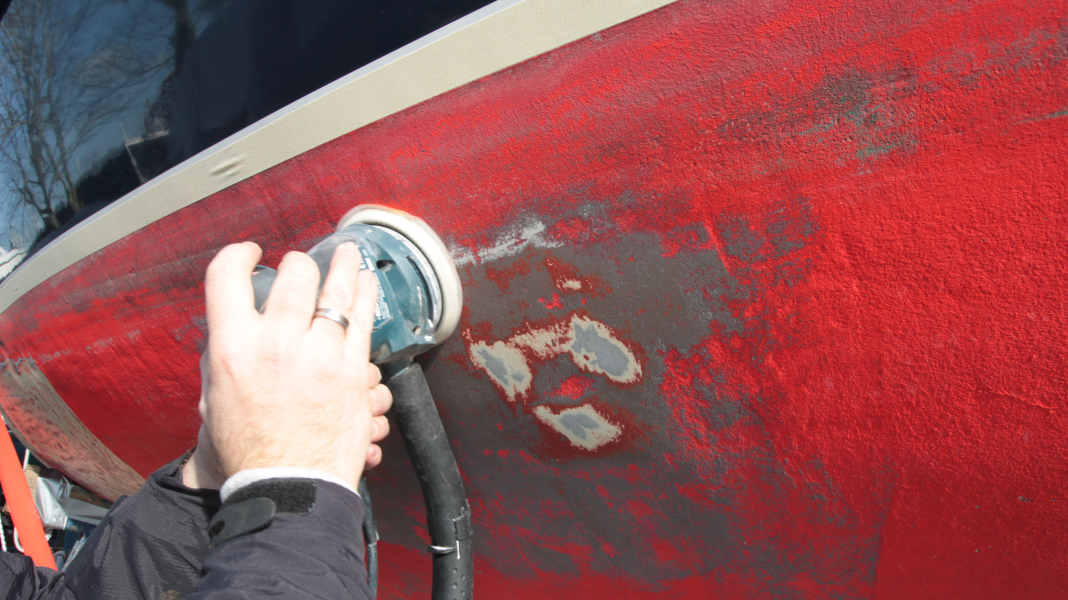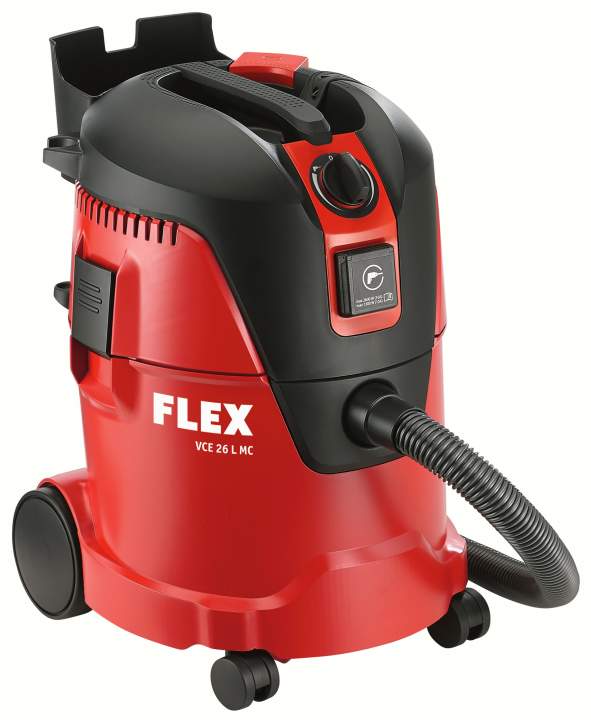Environmental protection: Increased police checks in winter storage

In this article, we use so-called affiliate links. With every purchase through these links, we receive a commission from the merchant. All relevant referral links are marked with . Learn more.
As in the previous year, there are increasing reports of unannounced police checks at the winter holiday camps along the German coasts. The officers are particularly focussing on compliance with environmental protection regulations. The inspections focus on work on the underwater hull, where sanding dust and antifouling coatings are handled. The police check whether the prescribed protective measures are being adhered to and whether only authorised paint systems are being used.
Approved extraction devices must be used for all sanding work on the underwater hull. This applies without exception, regardless of whether you are working with delta sanders, other small sanders or simple sandpaper. The police emphasise that full protective equipment must be used even for supposedly minor work. When asked what is meant by an approved extraction device, the water police explained that the hoover must be suitable for the sander. We have summarised below which points are important when choosing a hoover.
Another key requirement concerns the enclosure of the underwater hull. The work area must be completely covered with a tarpaulin to prevent sanding dust from being sucked into the environment. This measure not only serves to protect the immediate surroundings, but is also intended to prevent potentially harmful particles from spreading over a wide area.
The inspectors pay particular attention to soil protection. The entire area under the ship must be completely covered to prevent the penetration of pollutants into the soil and ultimately into the groundwater. This precautionary measure is of crucial importance, as many antifouling coatings contain highly toxic substances that can cause serious ecological damage.
Harsh consequences loom
Once the sanding work has been completed, boat owners are obliged to remove all residues completely. This includes not only the visible sanding dust, but also the finest particles that may have settled in cracks and crevices. Thoroughly cleaning the work area is a crucial step in preventing contamination of the surrounding area.
Legislation leaves no room for interpretation when selecting coating systems. Only products that have been officially approved for use in the waters of the Federal Republic of Germany may be used. This regulation is intended to ensure that only antifouling coatings whose environmental compatibility has been thoroughly tested and confirmed are used.
The police emphasise that violations of these environmental protection regulations are not minor offences. Failure to comply with the requirements is not punished as an administrative offence, but constitutes a criminal offence. Boat owners who do not comply with the regulations must expect to be charged with a criminal offence. The consequences can result in severe fines or, in serious cases, even imprisonment.
Hoover for working on the boat
A vacuum cleaner with a suitable filter system protects health, keeps the workplace clean and extends the service life of the abrasives

The limit values are not binding for private users, but should be observed in the interests of your own health and environmental protection. This means that at least a class L filter system is required. For sanding woods such as beech and oak or antifouling, it should be class M. However, it is worth taking a look at the technical data, sometimes a device is not categorised in the higher class, even though the filter technology is powerful enough. A cleaning function for the filter is only helpful when working without a bag. When sanding underwater paintwork, a bag should be used so that the dust can be removed from the vacuum cleaner without being stirred up again.
What you should look out for in a hoover
- Remote control
The Cordless Control system from Metabo fits all vacuum cleaners. A vibration sensor on the hose switches the device on and off - ideal for cordless tools - System vacuum cleaner
When vacuum cleaners and tools come from one manufacturer, the connections, suction power and accessories fit together perfectly. These solutions are convenient, but also expensive - Filters & bags
At least 99 per cent of the dust should be filtered, which corresponds to class L. Some vacuum cleaners achieve this without a bag. However, these are useful as they keep the appliance clean and make disposal easier - Volume
Models with a container volume of between 20 and 26 litres are sufficient for normal use. As the filter and bag take up space, the actual usable suction volume is often significantly less - Regulation
Limiting the suction power is not absolutely necessary, but can be practical if the sanding machine threatens to get stuck on the surface during fine sanding - Cable plug
When working with corded machines, the vacuum cleaner switches off automatically. After switching off, the vacuum cleaner should continue to vacuum for a few seconds to empty the hose - Accessories
An extra-long hose makes working with sanders much easier. A round brush is also very practical. Universal adapters are available for connecting to different electrical appliances
More about the underwater hull

Benyamin Tanis
Lawyer

